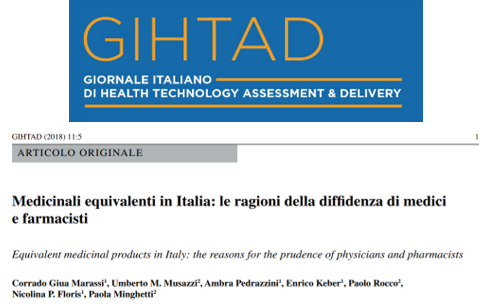
Despite the regulatory framework favourable to the use of equivalent medicines in Italy, it remains below the European average. Although the causes are not fully clarified, several factors can concur to the patient reluctance to take generic medicines. In this context, the influence of health professionals (e.g., physicians, pharmacists) could play an important role. The aim of this work is to investigate the reasons behind the reticence of doctors and pharmacists to prescribe/recommend equivalent medicines by means of a survey sent to 308 health professionals. The results confirmed a lack of confidence in 43% of the interviewees. Based on such results, another survey was conducted on the same sub-group of health professionals to better identify the causes of their reluctance. Among the main causes of distrust towards equivalent medicines remains the erroneous belief that the quality, safety and efficacy profile is not comparable with the originator. Physicians and pharmacists were particularly sceptics towards the equivalent drugs of the therapeutic classes most frequently used to treat chronic diseases (e.g., hypertension, arrhythmias, cardiopathies, diabetes mellitus). Such results highlighted that there is room for improving the preparation of the health professionals towards a better patient education about equivalent medicines. On the other side, the results highlighted the caution of both physicians and pharmacists with respect to uncontrolled switching of medicines and their propensity to promote a linear therapeutic choice so that the patient takes the same medicine throughout the therapy.
Clicca qui per visualizzare lo studio
Fonte: Giua Marassi C, Musazzi UM, Pedrazzini A, Keber E, Rocco P, Floris NP, Minghetti P. Equivalent medicinal products in Italy: the reasons for the prudence of physicians and pharmacists. GIHTAD (2018) 11:5.

